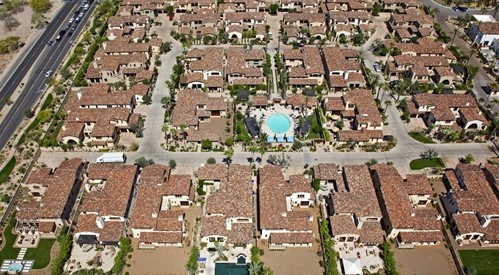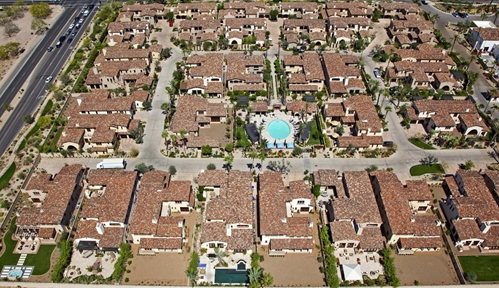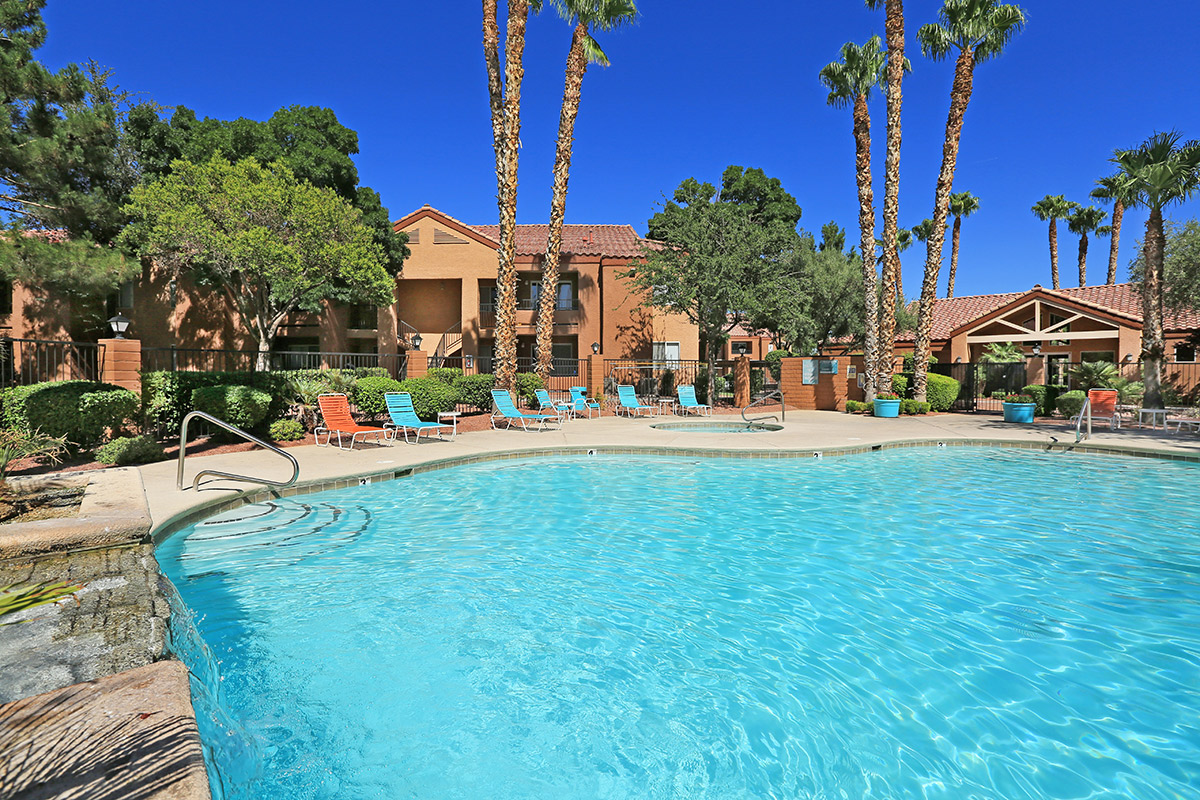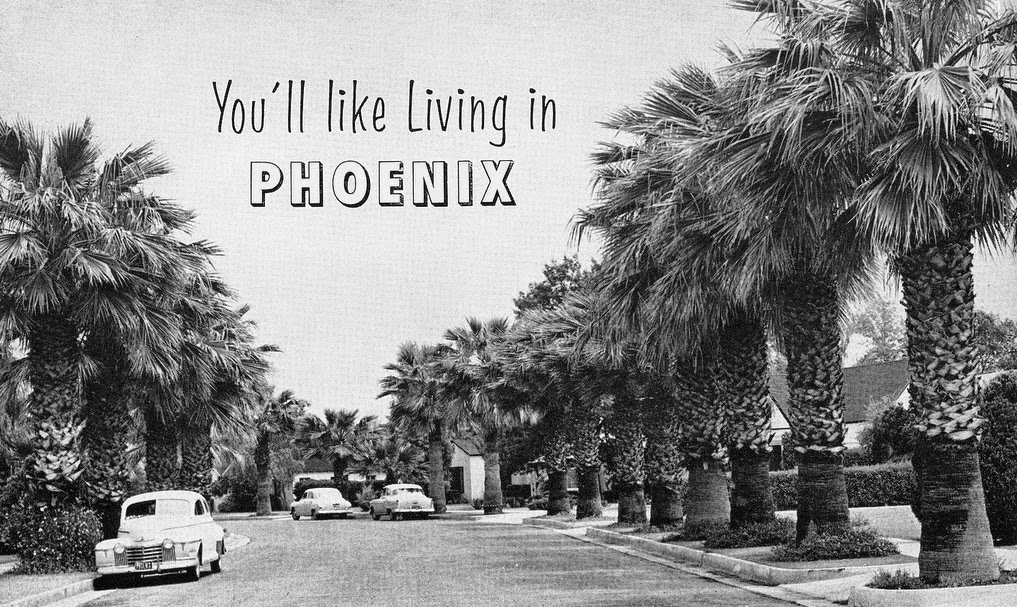
A Guide to HOA’s in Phoenix, AZ
I’ve spent all of my adult year’s right here in Phoenix. I’ve never really thought twice about HOA’s – Home Owners Associations. They are just about everywhere in the valley and that seemed normal. As I started working with clients from other parts of the country, it occurred to me, there seems to be more HOA’s right here in Phoenix than nearly any other place in the country. First, I’d like to explain why Phoenix has so many HOA communities. Then, let’s talk a little about what you need to know if you are planning on moving to Arizona or buying property in an HOA run community.
What is an HOA
To fully understand, you must understand what exactly an HOA is, and the legal rules that enforce its guidelines. Many folks fail to grasp the concept that HOA rules are enforceable. They’ll say “I pay for my property I should be able to do whatever I want on it.” Unfortunately, when you buy in an HOA the CC&R’s (Covenants, Conditions and Restrictions) are “appurtenant” to the land. In other words, they are attached to the piece of real property you are buying in the form of a deed restriction. Just like how land is zoned for commercial, or sanctioned for a particular use, these deed restrictions are similar. If you buy an HOA property, you must be aware that these rules are attached to the property on official Country records. If you do not follow, or pay your dues, the HOA does have the authority to fine you or even place a lien against your property.
Something I must clarify that most people don’t understand – it’s still possible to have CC&R’s even if there is NO HOA. Yes, you read that right. Many communities completely void of HOA board members and monthly Dues still have restrictions for the community that look very similar to a standard HOA. In this case, if you decided to do something that was against the CC&R’s your neighbors would have to get together and proceed with legal action. Something many would turn a blind eye to unless the issue was a major eyesore or became a concern for others. Although often used as synonyms, there is a difference between CC&R’s and HOA bylaws. The CC&R’s are actually the abiding rules to follow. HOA bylaws simply establish the HOA board, dictate how and when the HOA meets, voting rights, etc. In other words all HOA’s will have CC&R’s, but not all properties with CC&Rs have HOA’s. For purpose of keeping it simple and avoiding semantics, we’ll pretend they are one in the same today.
Let’s take a step back to Phoenix in the 1950s. Expansion from small town to booming western hub was underway. Unique communities were popping up, industry was thriving, and the vast amount of open land meant residents could have plenty of land to their name at reasonable prices. In 1950, Phoenix has approximately 100,000 residents. Today, Phoenix is nearly 1.5 Million and growing. That’s a 1,500% increase! Understand that HOAs didn’t start becoming popular until the mid to late 1980s. In the last 6 months as of writing, there were a grand total of 9,900 single family homes sold in the Phoenix Metro area that have NO HOA whatsoever. In contrary, there were 19,000 single family homes sold WITH an HOA. Just short of half. Now consider this -of those home sold that were built after 1985, around 18,000 homes had an HOA, compared to 2,700 without. Of those homes built BEFORE 1985, 7,400 hundred have NO association, while just 1,100 do.
If you followed me this far, maybe it’s becoming clear why Phoenix has so many HOAS. Phoenix is such a new city relative to other major cities (i.e. Philadelphia, New York, etc.). Arizona has seen the majority of its growth in the last 30 years, coincidentally about the time that HOA’s became popular. It’s simply timing, HOAs became popular across the nation, but the amount of development and population increase of Phoenix has been far greater than most other major cities in the last 30 years.
What it’s like to live in an HOA in Phoenix
Home Owners Associations can vary, from a dollar a week, to several thousand per month. The difference here lies typically in amenities. For example, a condo complex with a pool, tennis court, gym, clubhouse, valet or other amenities is going to cost significantly more than most. On the contrary some properties with HOA’s are so minimal, you might just wonder what they do. It’s quite common for many Phoenix HOA’s to only cover “Common area maintenance”. If you find yourself in one of these communities, you may be wondering exactly what that common area is. Most of the time it’s a Mailbox, community signage, a drainage wash or a little teenie- tiny patch of grass.
The moral here is, that a Home Owners Association can cover very little or an entire lifestyle of services – typically reflective of the dues. For more financially focused home buyers, it is an additional expense. However that expense is insurance that your neighborhood will be maintained and property values should be supported.

Just a few of the myriad of features and services an HOA may provide are:
-Trash/Water/Sewer
-Recreational Facilities
-Security personnel
-Street Maintenance
-Park Maintenance
-Valet services
-Gyms/Saunas
-Pools and Jacuzzis
Every HOA is different, but generally speaking for about 85 % of HOAs in the valley, you can expect they will have rules regarding:
-Paint colors – Approved colors or approval by the board before painting the home
-Weeds – Expect a notice on your door if your front yard looks like a South American jungle
-Plants – Approved list of plants and vegetation. Admittedly, the lists are usually pretty long and cover most plants you are going to want in your yard anyways.
-Parking –Rules will vary from a more relaxed “no parking RVs in yard for more than 3 weeks” to “no overnight driveway parking for one single night” ….ahem, Troon North.
Other home owners rules could include policies on:
Basketball hoops
Tree houses
Boats
RV’s
Pets (types, size, or number)
Age Requirements (55+ communities)
and LOTS more
When it comes down to buying a Phoenix home within an HOA, take it case by case. Every association is quite different. Request the CC&R’s from your agent, your title company or directly from the HOA to make the determination if you would have any issue with the rules. For most, HOA’s are a non-issue and we happily comply within the rules.

HOA Special Assessments
A special assessment is when the association charges the owners a fee to complete work outside the costs of your monthly dues. For example, if the HOA does not have enough money to upgrade the outdated gym, resurface the pool or put on new roofs, they will charge a special assessment to the owners above and beyond their monthly fees. Depending on the cost, this could be a one-time assessment, or a monthly assessment spread over several years. While it will be disclosed if there are any active special assessment payments when buying an HOA property in Arizona, you can go above and beyond and inquire into the association to see if there has been talks of any future special assessments.
Keep in mind that special assessments are only necessary if the Association has not planned and saved enough money in its reserves. They are not terribly common and I don’t come across them all the time but they do occasionally occur.
When you do buy and sell property within an association, be aware there are typically a few fees involved.
A transfer fee – usually around $300-$500 – who pays this fee is technically negotiable, more often than not it’s buyers.
Capital Improvement Fees – who pays is negotiable.
Disclosure Fees – State law a maximum of $400 fee – Required to be paid for by seller
As previously mentioned, the association board needs to budget in order to keep enough reserves for any routine or surprise expenses. If you plan on financing a new home purchase a lender is going to look at the HOA to make sure they have the proper reserves. This is not something most home buyers ever see or is too much concern about. It’s something as an agent to be careful of – if you are seeing signs of a poorly managed HOA, it could spell trouble for a potential buyer.
So are they good or bad? Ultimately, it depends on you. If you like to keep up with your house, enjoy a nice looking community where homeowners show pride of ownership and you like the amenities, don’t be afraid to buy a home in an association. Don’t get me wrong, there are plenty of Phoenix area communities that do not have HOAs and owners keep the properties pristine. However if someone wants to park a rusted pickup truck in their weed lawn well…no one’s stopping them.
Still have HOA questions?



Leave a comment